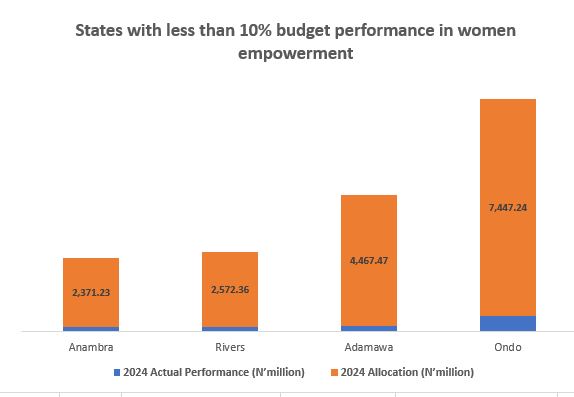…as communication gap widens
…businesses short on R&D
The need to step up the development of raw materials and other inputs locally, following the sharp rise in the value of the dollar against the naira, is focusing renewed attention on the volume and quality of research work in Nigerian universities, as well as funding for them.
The disconnect between academia and industry, which is said to often leave valuable research findings, innovations and ideas gathering dust, is also coming into attention, as many local industries have shut down, reduced output and disengaged workers on account of the high cost of raw materials and machinery sourced in foreign exchange.
Data from the Manufacturers Association of Nigeria (MAN) seen by BusinessDay, confirmed that local input preference, which refers to the rate at which manufacturers use domestic inputs, has risen from 46.71 percent in 2014 to 51.88 percent in 24 months.
MAN says the acute shortage of foreign exchange for importation of manufacturing raw materials and the weakening of the naira, since 2015, prompted the association to encourage its members to look inwards for raw materials.
In November 2016, Abdullahi Bichi Baffa, executive secretary of the Tertiary Education Trust Fund (TETFund) said the fund has spent N1.7 billion on the National Research but this has not translated into any improvement in the ranking of tertiary institutions in the country.
Muda Yusuf, director-general, Lagos Chamber of Commerce and Industry (LCCI) said in a telephone response to questions, that,“there is no alignment between industries and university research output. For a university research to be of value to industries, it must meet their industrial needs by looking at problems industries want to solve,” Yusuf said.
Yusuf also stated that some industries are currently contributing to endowments of chairs for particular courses. “At the Chamber, we support an endowment of chairs for entrepreneurship, which is now an annual scholarship,” he said.
“We need a reasonable level of research infrastructure to publish peer reviewed articles in high impact journals and we need excellent teachers to enable our graduates to perform confidently in the workplace” Oyewusi Ibidapo-Obe, a distinguished professor of Systems Engineering and former VC of the University of Lagos, Akoka, wrote in an emailed response.
“The first direction is research capacity building. There is the need to run annual, intensive, capacity-building (training) workshops on contemporary research techniques, for cohorts of science researchers. During the last five years, dotted all over Nigeria, are specks of such research capacity-building efforts which have had feeble impact in bolstering overall national contribution to the global science and technology research literature,” said Peter Okebukola, former executive secretary of the National Universities Commission.
Debo Adeyewa, Vice Chancellor Redeemers University, contended that government has a great role to play in realigning academic research to industry needs.
“A proactive government should challenge its universities to come up with solutions to problems in the society. The United States of America, the United Kingdom and other advanced economies do this. They challenge their researchers and say these are the problems we have, universities come up with solutions.” Adeyewa said.
In an interview with Nature, an international weekly science journal, Obe stressed that in general, “our country has suffered from leadership that paid only lip service to the contribution of science to national development. The decline in research output is a worrying sign.”
“Goodluck Jonathan, who has a PhD in zoology did give a US$5-million research grant to the Nigerian Academy of Science (NAS), and in 2011 he introduced the Tertiary Education Trust Fund (TETFund), which distributes public funding for infrastructure in Nigeria’s universities, and for research through competitive grants.”
“There is definitely some level of disconnect between town and gown, industry and academia. We are committed to bridging this gap, both parties sit in their own space and complain, this will not help. We have started by engaging with Small and Medium Enterprises (SMEs), since they form the engine of any consumer driven economy,” said Wellington Oyibo, director, Centre for Research and Innovation, University of Lagos.
Oyibo emphasised that “the University of Lagos is gradually evolving into a research based university. The ratio of undergraduate to post-graduate students now is 50:50. This two and half year old Centre for Research and Innovation is testimony that we are indeed committed to changing the narrative by bringing research to bear on industry innovation.”
The University of Lagos is particularly strategic because it is located at the heart of a commercial hub. One of the biggest problems in addition to funding, is the absence of governing documents, such as Intellectual Property policy and research and innovation policy.
“Over the past five years, more than N500 million has been spent on scholarly research work. In 2012 and 2014, the value of university funded faculty research was about N100 million, with support from the Tertiary Education Trust Fund (TETFund) and the Central Research Committee (CRC) set-up by the University Senate,” Babajide Alo, deputy vice-chancellor academics and research stated in “Research Report, 2012 – 2014” published by the University of Lagos.
Alo added, “The University’s CRC funds research at the mini-research grant and full research grant of N1million and up to N3million respectively, to enable faculty members conduct full research or generate preliminary research data that will pave way for the development of an expanded competitive research proposal.”
Other sources of in-country funding include the Lagos State Research Development Council. The aim of the LSRDC was to bridge the apparent disconnect between the society and the universities by providing research grants to universities, scientists and lecturers, to proffer solutions to national challenges.
The University of Lagos receives funding from international agencies and industry also. Research funds have been received from the National Institute of Health (NIH), Fogarty International, Google Global Impact Awards (GGIA), World Health Organisation (WHO), European Union (EU), the German Research Foundation (FDG), and Foundation for Innovative New Diagnostics (FIND) Geneva, among others.
By STEPHEN ONYEKWELU & JOSEPHINE OKOJIE











